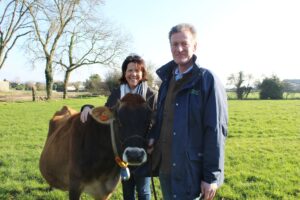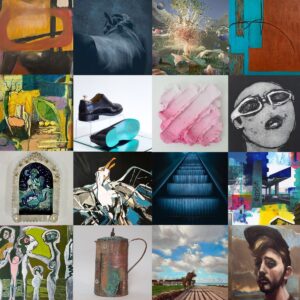RURAL’s editor ALASDAIR CROSBY kicks off a regular blog from the magazine’s contributors.
———
I LIVE in the land of Dot Com, but how I wish I still lived in Dotcombe.
Dot Com is a busy place at the moment. RURAL magazine has jumped into the 21st Century – 18 years late, of course, but it has taken a long time to get as far as standing, shivering, on the diving board before making that jump: One – Two – Three… ??
One – Two – Three – Four? …..
No – try again.
One – Two – Three…
JUMP!!
A-A-A-A-ARGH!!!
SPLASH!!
It’s jolly cold, this Dot Com 21st Century.
How much easier it would have been to turn tail and walk back down the steps to the Century-side, settle myself on a sun lounger, order myself a cocktail and observe the new Century in comfort, from the side, without taking part in it, while dozing in the sunshine over a good book.
No such luck: here I am, for better or for worse, splashing about in it, trying to keep my head above water… Website, e-newsletter, Facebook, Instagram…
I am told that once I warm up I will enjoy it. It’s the warming up process that’s painful.
I regret I ever had to leave Dotcombe.
Dotcombe never really existed, of course, but I have lived in a number of places that bore, in parts, some striking resemblance to it.
As the name might imply, Dotcombe is somewhere in the West Country, in a land of rolling hills, small fields and large expanses of wild country. In the village there is a shop, where one can get anything essential for daily living; an expedition to Dotbury now and then provides the luxuries of life. There is a pub (or two), a village pond, a green, the Big House, a church, a rectory.
The fastest way of receiving news – apart from the considerable expense of a trunk call – was for a lad from the Post Office to cycle to us bearing a telegram.
And I remember well from my own time in Dotcombe the village’s way of dealing with a youth who was, in today’s phraseology, ‘mentally challenged’ – he was often visible, sitting outside the pub or being treated to a drink – cared for, casually if warmly, by his fellow villagers, who felt responsible for his day-to-day welfare. Dotcombe took care of its own.
How different – how very different – was Dotcombe to Dot Com.
Many years later, I was living in Germany, in a small wine producing village, which we can call Dottenhausen. This was during the early 1980s, during the time of Solidarnosç when there was an influx of Polish workers, allowed to seek work in the west by their Communist government on short-term visas to allow other countries in the west to feed them, as the Polish government could not afford to do so.
It was my responsibility, bestowed upon me by a local wine grower, to liaise between them and their German employers.
Most of the workers from Poland were cheerful young men, whose free-time was spent happily drinking vodka. But there were some older men, who kept themselves to themselves and to one of these I was asked to convey a message about some trivial subject such as working hours for the following day.
I found him in the room he had been allocated. As I spoke only a few words of Polish, I am not sure how we communicated, but somehow I managed to communicate my message and understood that he would be pleased if I accepted a cup of tea.
The room in which he lived had been made into a traditional Polish home: there were religious pictures on the wall and framed photos of the Polish Pope and Cardinal Wyszyński. There was a row of books on the shelf above his bed. The atmosphere was quiet – and one might say, holy.
As I drank my tea, he told me (somehow) that he had been an engineer in Syria, working on a Polish government contract installing some civil works. Now, he was doing manual labour in a German vineyard.
His background was so different from the then contemporary Polish society. Somehow, I asked him how he coped with a way of life that was so totally different from his own – it was as if his country had deserted him.
And his reply? ‘Interior emigration’.
Forget about the nightmare of contemporary politics and the woeful dearth of medicine and consumer goods. His little room was the Poland into which he had been born and which he loved and in which he now preferred to live in a parallel reality.
And then, a few years later, against all expectations, his own dear Poland became manifest once again.
I have remembered the lesson. Dot Com is not my country and I feel alienated from it. Dotcombe is very far away, but I like to keep a place for it laid at the table, in case one day, against all expectation, it might return.
It is doubtless a foolish and unrealisable hope. Dot Com is the future; it is bright, it is optimistic, it gleams luridly in the artificial light of the digital dawn.
But I prefer my memories of Dotcombe and the wildly improbable hope, one day, of meeting once again Dotcombe quondam futurusque.




